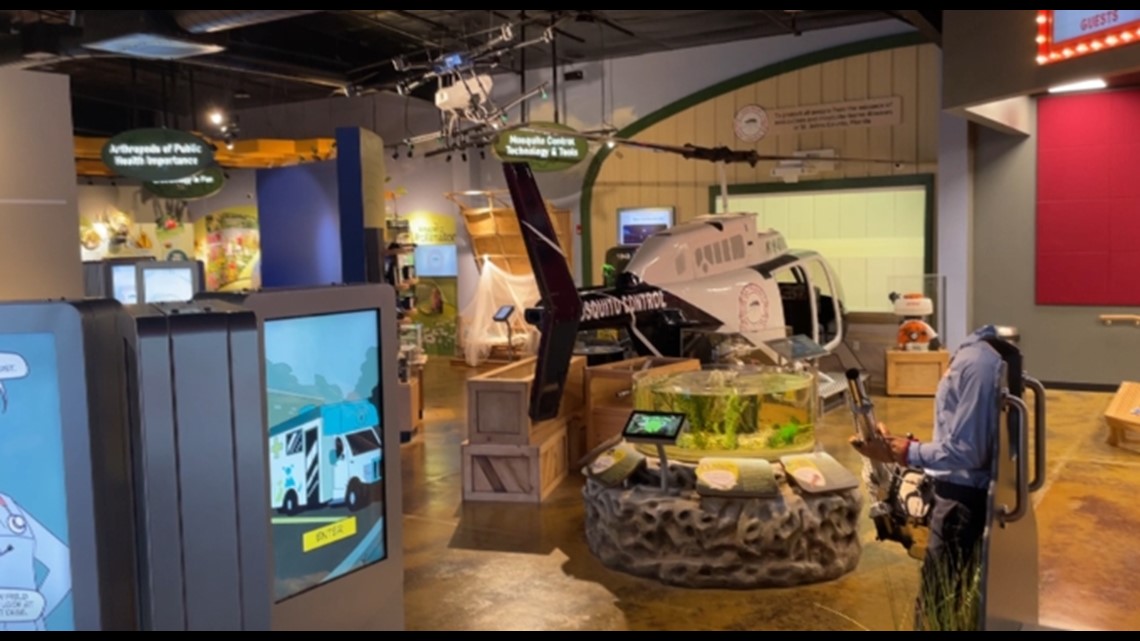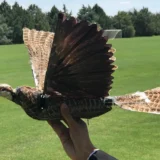St. Augustine mosquito museum mixes education with fun
It’s a first for the U.S., and Florida seems a fitting place for a museum dedicated to mosquitos
ST. AUGUSTINE, Fla. — The newest science museum on the First Coast is one of a kind in the United States.
It’s locally called the mosquito museum, although it’s actual name is the Disease Vector Education Center.
It opened this month to the public in St. Augustine.
The brand new interactive insect experience has games, microscopes, videos, a toddler area, and an working laboratory with actual skeeter scientists.
The highlight inside the museum might just be the helicopter inside the building. It’s similar to the the kind used to spray for mosquitos. Visitors can sit inside it and feel like they’re the pilot. A large screen in front of the chopper shows videos of local landscapes as if you’re flying over them.

The Anastasia Mosquito Control District is the taxpayer-supported organization that sprays for and researches mosquitoes in St. Johns County. It built this new museum off of State Road 16 in St. Augustine on EOC Drive.
Trish Becker is a museum volunteer, and she’s also an elected Anastasia Mosquito Control District Commissioner.
The commission she’s on received criticism for spending $4 million of taxpayer money to build the mosquito museum.
Becker’s response was, “This is not just a museum. This is an educational center. And the whole purpose of the building is to follow the Florida statute that we run under.”
And she said part of that mandate is to educate.
“We want this to be a place where you come in, learn, and more importantly, have fun while you’re learning,” Becker said. “And to get people interested in these different industries. I mean, there’s a huge pilot shortage. There’s a scientist shortage. We need people in these fields.”
A group of children who just walked out of the museum, told First Coast News what they thought.
“I think it was really fun,” one young boy said.
Another said, “It was fun and there is a storm screen corn toss, like tossing beanbags. It’s like what they put pesticides into the storm drains.” That same child mentioned he learned mosquitos can spread malaria.
Another child talked about the microscopes, the live bee colony (behind glass), and the collection of different insects.
Their mother told First Coast News, “It was a lot better than I thought. We learned a lot.”
The Disease Vector Education Center will have free admission until July.
For more information, click here.











